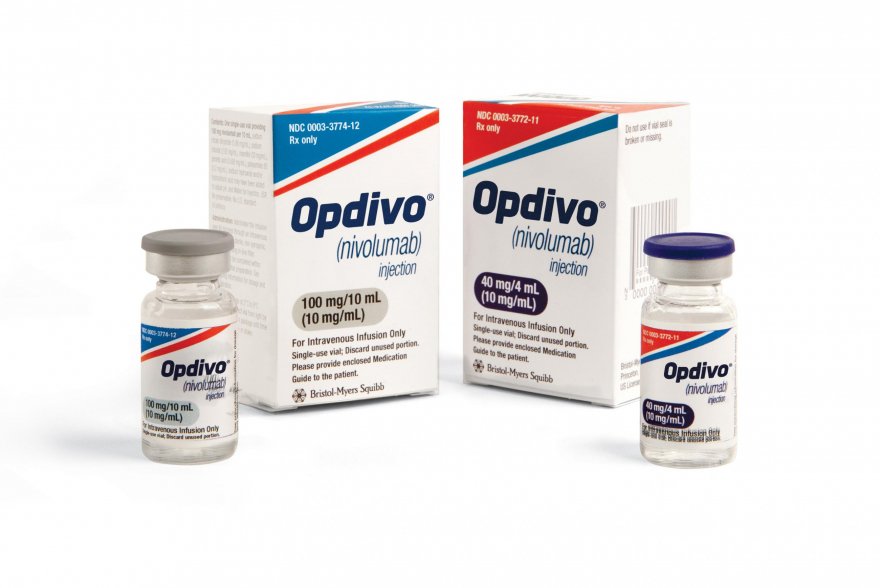
It’s no secret that Bristol-Myers Squibb’s investors are feeling skittish after a pair of negative Opdivo developments last week. And on Thursday’s third-quarter conference call, executives plunged right into their doubts.
After a two-day period in which the company 1) saw competitive kidney cancer data posted by Opdivo archrival Keytruda from Merck and 2) produced a new analysis that could hurt its first-line lung cancer filing for the Opdivo-Yervoy tandem, Bristol CEO Giovanni Caforio said he was “aware of some of the frustration that many of you have.”
“I want you to know that I acknowledge your concerns,” he said—and he proceeded to do just that, starting with the new lung cancer analysis that threw into doubt the importance of the new biomarker, tumor mutational burden, that BMS staked its filing on.
The company remains “committed to working with health authorities” on the application and “advancing our research” around TMB, he said, reminding investors that Bristol isn’t the only one exploring the biomarker. “Several other companies as well as academic institutions” are working to understand its importance, he said.
On the kidney cancer front, Caforio was more decidedly positive, despite “a lot of news and debate about how this market is going to evolve.”
RELATED: Merck’s Keytruda, ready to challenge Bristol-Myers Squibb, posts kidney cancer combination win
New commercial chief Christopher Boerner echoed that positivity, pointing out that because of the company’s longtime presence in previously treated kidney cancer, “we know these physicians, they know us, they know our drug,” he said.
In the second-line setting, the Opdivo-Yervoy regimen is the standard of care and boasts market share north of 50% in the U.S., thanks to a “very good profile” and a strong commercial organization, he added, predicting that although “in the long term we will see a much more fragmented market,” the combo will hold its ground in the front-line market.
RELATED: Cool it, analyst urges ‘overly punitive’ BMS investors after rough Opdivo week
All things considered, executives said Opdivo, whose sales leapt by 42% year over year to reach $ 1.79 billion for the third quarter, would post growth in 2019. BMS’ investors, though, haven’t felt as optimistic, and if you ask Goldman Sachs analyst Jami Rubin, they’ve even been a bit too brutal when reacting to recent developments. Earlier this week, she called the recent even response from shareholders—who lopped $ 5 billion off of BMS’ market cap—“overly punitive.”
Still, even she acknowledged that the company has lost its grip on the market’s top spot, writing that “It has been very disappointing to witness Bristol-Myers’ once dominant position in I-O cede to a potentially distant second” behind Keytruda.
Meanwhile, superstar anticoagulant Eliquis missed projections despite a sales swell of 28% over the year-ago quarter. The $ 1.58 billion it generated in the third quarter didn’t quite measure up to the $ 1.67 billion analysts thought they’d see, and CFO Charlie Bancroft attributed the miss in part to the “impact of coverage gaps” being “most pronounced” in each year’s third quarter.
On the bright side, though, Eliquis overtook old standby warfarin as the leading oral anticoagulant, and with warfarin still clinging to a 35% share of total U.S. prescriptions, BMS’ leaders see plenty of room for continued growth.
While overall revenue of $ 5.69 billion may have fallen just short of expectations for the period despite a strong showing for Opdivo, Bristol turned in a 31-cent beat in the profit department. Earnings more than doubled to $ 1.16 per share—up from 51 cents per share—thanks in part to decreases in taxes, R&D expenses and marketing, selling and administrative expenses.
The performance was enough to convince Bristol’s executives to up guidance for the year. The company now expects 2018 earnings to hit between $ 3.05 and $ 3.15, up from the previously communicated $ 2.68 to $ 2.78.
